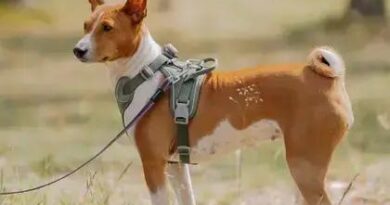O que é Desapego do animal
What is Animal Detachment?
Animal detachment, or the process of letting go of a pet, can be a complex emotional experience for many pet owners. It often arises from various circumstances, including relocation, financial difficulties, or changes in lifestyle that make it challenging to care for a pet. Understanding what animal detachment entails is crucial for both the pet and the owner, as it involves not just physical separation but also emotional and psychological aspects that need to be addressed.
The Emotional Impact of Animal Detachment
The emotional impact of animal detachment can be profound. Owners may experience feelings of guilt, sadness, and anxiety about their decision. The bond between a pet and its owner is often deep, and the thought of separation can lead to significant distress. Recognizing these feelings is the first step in coping with the detachment process, allowing owners to seek support from friends, family, or professional counselors who understand the emotional weight of the situation.
Reasons for Animal Detachment
There are numerous reasons why an owner might consider animal detachment. Some common factors include changes in living situations, such as moving to a pet-free apartment, financial constraints that make pet care unaffordable, or personal circumstances like health issues that prevent proper care. Understanding these reasons can help owners make informed decisions that prioritize both their well-being and that of their pets.
Preparing for Animal Detachment
Preparing for animal detachment involves several steps to ensure a smooth transition for both the owner and the pet. This preparation may include finding a suitable new home for the pet, whether through friends, family, or reputable shelters. It is essential to communicate openly with potential adopters about the pet’s needs, personality, and any special care requirements to ensure a good match and a happy future for the animal.
Finding a New Home for Your Pet
Finding a new home for a pet can be one of the most challenging aspects of animal detachment. Owners should take the time to screen potential adopters carefully, ensuring they can provide a loving and stable environment. Utilizing social media, local animal shelters, and community groups can help spread the word and connect with responsible pet owners looking to adopt. This process not only benefits the pet but also provides peace of mind to the original owner.
Emotional Support During Detachment
During the detachment process, emotional support is vital. Owners may benefit from talking to friends or family members who have experienced similar situations. Additionally, support groups, both online and offline, can provide a safe space to share feelings and experiences. Professional counseling may also be beneficial for those struggling with the emotional toll of letting go of a beloved pet.
Understanding Grief After Detachment
Grief is a natural response to animal detachment, and it can manifest in various ways. Owners may experience sadness, anger, or even relief, depending on their circumstances. Acknowledging these feelings is essential for healing. Engaging in self-care practices, such as journaling, meditation, or spending time with other pets, can help ease the grieving process and facilitate emotional recovery.
Alternatives to Animal Detachment
Before deciding on animal detachment, owners should explore alternatives that may allow them to keep their pets. Options such as pet sitters, dog walkers, or temporary fostering can provide solutions during challenging times. Additionally, reaching out to local animal welfare organizations for resources and support can help owners find ways to maintain their bond with their pets while addressing their current challenges.
Moving Forward After Detachment
Moving forward after animal detachment requires time and patience. Owners should allow themselves to grieve and process their emotions fully. As time passes, many find comfort in volunteering at animal shelters or fostering pets in need, which can help fill the void left by their own pet. Engaging in these activities not only honors the bond shared with their pet but also contributes positively to the lives of other animals.




